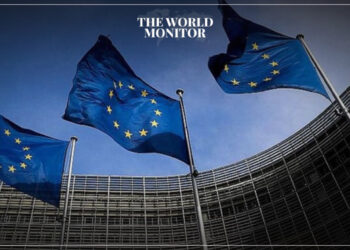According to a recent report by the Washington Post, Israel and the Palestinian organization Hamas are on the verge of reaching a hostage exchange deal. This agreement could lead to the release of most Israeli women and children kidnapped on October 7.
A senior Israeli official, speaking on the condition of anonymity due to the sensitivity of the matter, suggested that the deal might be announced within days, once final details are resolved. The official revealed that the framework of the deal is understood, and the broad lines have been agreed upon.
Preliminary Agreement Terms
The preliminary agreement, as detailed by the newspaper, involves releasing the Israeli women and children in groups, in tandem with the release of Palestinian women and young detainees from Israeli prisons. While Israel aims to secure the release of all 100 hostages taken, the initial release might involve a smaller number. Hamas has shown willingness to release around 70 women and children, as per a statement by one of its officials on a Telegram channel quoted by Reuters.
The exact number of Palestinian women and youths to be released remains unclear, but an Arab official informed the agency last week that at least 120 are in Israeli prisons.
Five-Day Ceasefire and Broader Implications
The Israeli official also mentioned that a temporary ceasefire, possibly lasting five days, would accompany the hostage exchange. This ceasefire would facilitate safe travel for the released Israeli prisoners and could lead to more international aid for Palestinian civilians in Gaza, alleviating the humanitarian crisis there.
President Biden has expressed strong support for the hostage deal in a phone call on Sunday, specifically appreciating Qatar’s Amir, Sheikh Tamim bin Hamad Al Thani, for mediating with Hamas. The White House statement highlighted the leaders’ agreement on the necessity of releasing all hostages without further delay.
U.S. officials hope that the hostage release agreement and temporary ceasefire will diminish international uproar surrounding the war, as Israel has repeatedly expressed its unwillingness to end its campaign aimed at dismantling Hamas’s military power.
Israel is seeking assurances that all its detained citizens, each identified by name, will be released during the Palestinian prisoner exchange. The verification process remains one of the details still under negotiation.
A First Step
The Washington Post noted that the Mossad worked closely with Qatar and the CIA in formulating the deal. While Israeli officials appreciate Qatar’s assistance, they want Doha to exert its influence over Hamas for the release of their prisoners, rather than just mediating. Officials also believe Egypt played a constructive role in encouraging negotiations and pressuring Hamas.
The release of Israeli women and children is viewed as a first step towards what Israel insists must be the release of all hostages in Gaza.
The senior Israeli official stated that a total of 240 to 250 hostages are held, mostly Israeli citizens, including some with dual citizenship from the United States, Germany, and other countries. About 35 of the hostages are non-Israeli foreigners, mainly Thai workers in Israel.
The Israeli government is committed to the release of all hostages, including approximately 90 civilians and a smaller group of soldiers, who Hamas may consider more valuable. “We want as many as possible, as soon as possible, and to ensure that no one is left behind,” the official emphasized.
The prospective hostage exchange between Israel and Hamas represents a significant development in the ongoing Israeli-Palestinian conflict. Historically, the relationship between Israel and Hamas has been marked by periods of intense conflict and uneasy ceasefires. Hostage exchanges have occurred in the past and often involve complex negotiations facilitated by third parties like Qatar and Egypt.
The conflict in Gaza has led to recurring humanitarian crises, with international focus on alleviating the suffering of civilians in the region. The involvement of the United States, Qatar, and other international players in facilitating this deal highlights the broader geopolitical dynamics in the Middle East and the importance of diplomatic efforts in conflict resolution.






